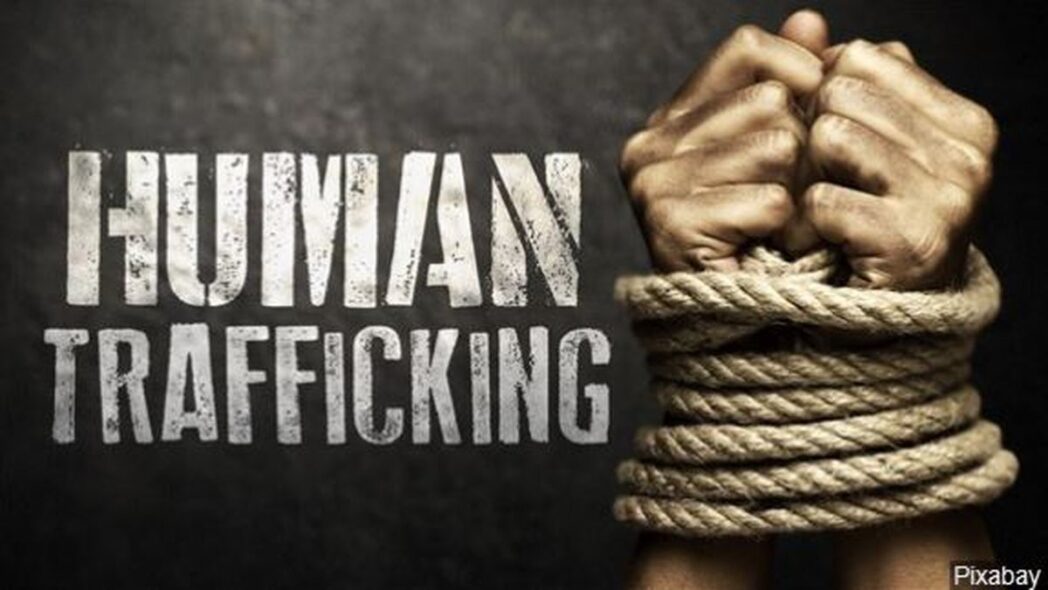
The urgent need for international cooperation to combat human trafficking
The recent rescue of 11 young Nigerian girls from the clutches of human traffickers in Ghana is a depravity that lurks in the shadows of our society.
The victims, aged 14 to 18, were lured with promises of restaurant jobs, only to be forced into prostitution and subjected to ritual oaths.
This heinous crime is an indictment of our collective failure to protect the vulnerable and a moral decadence that pervades our society.
The fact that the victims were transported from Lagos to Ghana without international passports, and ferried by boats and roads, speaks to the brazen nature of the traffickers and the lack of effective border control.
The involvement of family members, as revealed by the twins and the alleged mastermind’s brother, adds a disturbing layer of complexity to this case.
The arrest and detention of the alleged culprit are welcome developments, but more needs to be done to tackle the scourge of human trafficking.
Our government must work tirelessly to strengthen border control, collaborate with international agencies, and provide support services for victims. We must also confront the societal issues that drive human trafficking, such as poverty, lack of education, and unemployment.
As a society, we must acknowledge the role we play in perpetuating this cycle of exploitation. We must recognise the value and dignity of every human life and work towards creating a society that is just and equitable for all.
The fight against human trafficking requires a collective effort, and we must all play our part in eradicating this blight on our collective conscience.
Child trafficking in Nigeria has long been a pervasive issue, encompassing not only sex trafficking but also forcing children into strenuous labour. According to UNICEF, children have been victims of this heinous practice for years, with reports highlighting Nigeria’s role as a source, transit, and destination country for trafficked children.
The NAPTIP/UNICEF Situation Assessment of Child Trafficking in Southern Nigeria in 2004 revealed alarming statistics: 46 percent of victims repatriated from external trafficking were children, predominantly exploited in prostitution, domestic labour, forced labour, and entertainment. Internally, children were trafficked for purposes including forced labour, domestic work, and prostitution.
Recent efforts have seen collaboration between Nigeria and neighbouring countries like Gabon, Cameroon, Niger, Italy, Spain, Benin Republic, and Saudi Arabia to combat this scourge. For instance, a joint operation by UNICEF in Nigeria and Benin Republic rescued over 500 children from granite quarries between October and December 2003, facilitating their safe return home.
Despite these efforts, the persistence of child trafficking underscores the urgent need for strengthened international cooperation, comprehensive legislative measures, and robust enforcement to protect vulnerable children and eradicate this egregious violation of human rights.
The increasing number of repatriations from foreign countries, including the UK, Italy, Netherlands, USA, Belgium, Ireland, Saudi Arabia, and South Africa, highlights the severity of the issue.
The false promise of employment, vocational training, or marriage continues to lure Nigerian girls into trafficking for prostitution.
Despite growing awareness, many children still fall prey to traffickers, often with the connivance of family members who prioritise financial gain over their children’s well-being.
The root causes of this crisis are multifaceted, including escalating poverty, lack of opportunities, eroded family values, and the allure of foreign exchange.
While poverty plays a role, it is equally concerning that some parents and guardians have become complicit in the trafficking of their children, driven by greed and a get-rich-quick mentality.
The existence of private transit camps in coastal states, where children are forced into labour and prostitution, is a disturbing indicator of the country’s systemic collapse.
The government must take decisive action to address these issues, including strengthening law enforcement, providing support services for victims, and addressing the socioeconomic factors driving human trafficking.
The repatriation of victims from Ghana is a wake-up call for Nigeria to confront its moral and systemic failures. It is time for the country to prioritise the well-being and safety of its citizens, particularly vulnerable children, and to address the greed and corruption that perpetuate human trafficking.
The spotlight now shines brightly on the National Agency for the Prohibition of Trafficking in Persons (NAPTIP), known for its past successes yet facing an urgent need to become more proactive in combating this pervasive issue.
Simultaneously, the National Orientation Agency (NOA) is urged not just to raise awareness but to adopt a more assertive approach in its campaigns against such abhorrent crimes. Collaboration with traditional leaders is deemed essential to amplify the impact of their efforts.
Amidst calls for thorough investigation, likened to high-profile cases like that of Epstein in the United States, the urgency for unearthing every facet of this organised crime is emphasised.
It’s a crime involving influential figures, demanding nothing less than a comprehensive probe to ensure justice prevails and all perpetrators are held accountable.
Moreover, the involvement of ministries such as Foreign Affairs and Women Affairs is underscored, highlighting the necessity for concerted efforts with NAPTIP to pursue justice vigorously.
Sweeping this case under the carpet is not an option; instead, it must serve as a deterrent while fulfilling the government’s solemn duty to safeguard its youth and secure a safer future for generations to come.




